I have two Entities(Group and User) which have some one to many and many to many relations and I have marked these as fetch type lazy, but while retrieving just a single Group entity I am getting all the entities which are present in the Group class which is leading to StackOverflow error.
Group.java
package com.bezkoder.springjwt.models;
import javax.persistence.*;
import java.util.ArrayList;
import java.util.HashSet;
import java.util.List;
import java.util.Set;
@Entity
@Table(name = "grp")
public class Group {
@Id
@GeneratedValue(strategy = GenerationType.IDENTITY)
private Long id;
@Column
private String groupName;
@Column
private String createdBy;
public Group(String groupName, String createdBy ) {
this.groupName = groupName;
this.createdBy = createdBy;
}
public Group() {
}
public String getCreatedBy() {
return createdBy;
}
public void setCreatedBy(String createdBy) {
this.createdBy = createdBy;
}
@ManyToMany(fetch = FetchType.LAZY)
@JoinTable(name = "user_group",
joinColumns = @JoinColumn(name = "user_id",referencedColumnName = "id"),
inverseJoinColumns = @JoinColumn(name = "group_id",referencedColumnName = "id")
)
private Set<User> users = new HashSet<>();
@OneToMany(
cascade = CascadeType.ALL,
orphanRemoval = true
,fetch = FetchType.LAZY,mappedBy="group")
private List<Post> postList = new ArrayList<>();
public List<Post> getPostList() {
return postList;
}
public void setPostList(List<Post> postList) {
this.postList = postList;
}
public Set<User> getUsers() {
return users;
}
public void setUsers(Set<User> users) {
this.users = users;
}
public void setId(Long id) {
this.id = id;
}
public String getGroupName() {
return groupName;
}
public void setGroupName(String groupName) {
this.groupName = groupName;
}
public Long getId() {
return id;
}
}
User.java
package com.bezkoder.springjwt.models;
import com.fasterxml.jackson.annotation.JsonIgnore;
import java.util.HashSet;
import java.util.Set;
import javax.persistence.*;
import javax.validation.constraints.Email;
import javax.validation.constraints.NotBlank;
import javax.validation.constraints.Size;
@Entity
@Table(name = "users",
uniqueConstraints = {
@UniqueConstraint(columnNames = "username"),
@UniqueConstraint(columnNames = "email")
})
public class User {
@Id
@GeneratedValue(strategy = GenerationType.IDENTITY)
private Long id;
@ManyToMany(fetch = FetchType.LAZY)
@JoinTable( name = "user_roles",
joinColumns = @JoinColumn(name = "user_id"),
inverseJoinColumns = @JoinColumn(name = "role_id"))
private Set<Role> roles = new HashSet<>();
@ManyToMany(fetch = FetchType.LAZY,
cascade = {
CascadeType.PERSIST,
CascadeType.MERGE
},
mappedBy = "users")
@JsonIgnore
private Set<Group> groups = new HashSet<>();
public Set<Group> getGroups() {
return groups;
}
public void setGroups(Set<Group> groups) {
this.groups = groups;
}
@NotBlank
@Size(max = 20)
private String username;
@NotBlank
@Size(max = 50)
@Email
private String email;
@NotBlank
@Size(max = 120)
private String password;
public User() {
}
public User(String username, String email, String password) {
this.username = username;
this.email = email;
this.password = password;
}
public Long getId() {
return id;
}
public void setId(Long id) {
this.id = id;
}
public String getUsername() {
return username;
}
public void setUsername(String username) {
this.username = username;
}
public String getEmail() {
return email;
}
public void setEmail(String email) {
this.email = email;
}
public String getPassword() {
return password;
}
public void setPassword(String password) {
this.password = password;
}
public Set<Role> getRoles() {
return roles;
}
public void setRoles(Set<Role> roles) {
this.roles = roles;
}
}
Error
java.lang.StackOverflowError: null
at java.base/jdk.internal.misc.Unsafe.allocateUninitializedArray(Unsafe.java:1380) ~[na:na]
at java.base/java.lang.StringConcatHelper.newArray(StringConcatHelper.java:494) ~[na:na]
at java.base/java.lang.StringConcatHelper.simpleConcat(StringConcatHelper.java:421) ~[na:na]
at java.base/java.lang.String.concat(String.java:2768) ~[na:na]
at java.base/java.net.URLStreamHandler.parseURL(URLStreamHandler.java:265) ~[na:na]
at java.base/sun.net.www.protocol.file.Handler.parseURL(Handler.java:67) ~[na:na]
at java.base/java.net.URL.<init>(URL.java:703) ~[na:na]
at java.base/java.net.URL.<init>(URL.java:569) ~[na:na]
at java.base/jdk.internal.loader.URLClassPath$FileLoader.getResource(URLClassPath.java:1246) ~[na:na]
at java.base/jdk.internal.loader.URLClassPath.getResource(URLClassPath.java:322) ~[na:na]
at java.base/jdk.internal.loader.BuiltinClassLoader.findClassOnClassPathOrNull(BuiltinClassLoader.java:757) ~[na:na]
at java.base/jdk.internal.loader.BuiltinClassLoader.loadClassOrNull(BuiltinClassLoader.java:681) ~[na:na]
at java.base/jdk.internal.loader.BuiltinClassLoader.loadClass(BuiltinClassLoader.java:639) ~[na:na]
at java.base/jdk.internal.loader.ClassLoaders$AppClassLoader.loadClass(ClassLoaders.java:188) ~[na:na]
at java.base/java.lang.ClassLoader.loadClass(ClassLoader.java:521) ~[na:na]
at com.fasterxml.jackson.databind.JsonMappingException.prependPath(JsonMappingException.java:445) ~[jackson-databind-2.13.3.jar:2.13.3]
Controller class debug(Group has infinite users and as users has groups there is some recursion happening)
